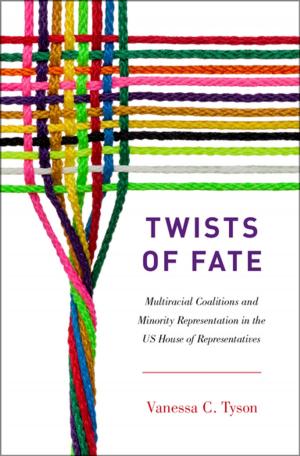Famine that Kills
Darfur, Sudan
Nonfiction, History, Africa, Social & Cultural Studies, Political Science, Social Science| Author: | Alex de Waal | ISBN: | 9780199884599 |
| Publisher: | Oxford University Press | Publication: | January 13, 2005 |
| Imprint: | Oxford University Press | Language: | English |
| Author: | Alex de Waal |
| ISBN: | 9780199884599 |
| Publisher: | Oxford University Press |
| Publication: | January 13, 2005 |
| Imprint: | Oxford University Press |
| Language: | English |
In 2004, Darfur, Sudan was described as the "world's greatest humanitarian crisis." Twenty years previously, Darfur was also the site of a disastrous famine. Famine that Kills is a seminal account of that famine, and a social history of the region. In a new preface prepared for this revised edition, Alex de Waal analyzes the roots of the current conflict in land disputes, social disruption and impoverishment. Despite vast changes in the nature of famines and in the capacity of response, de Waal's original challenge to humanitarian theory and practice including a focus on the survival strategies of rural people has never been more relevant. Documenting the resilience of the people who suffered, it explains why many fewer died than had been predicted by outsiders. It is also a pathbreaking study of the causes of famine deaths, showing how outbreaks of infectious disease killed more people than starvation. Now a classic in the field, Famine that Kills provides critical background and lessons of past intervention for a region that finds itself in another moment of humanitarian tragedy.
In 2004, Darfur, Sudan was described as the "world's greatest humanitarian crisis." Twenty years previously, Darfur was also the site of a disastrous famine. Famine that Kills is a seminal account of that famine, and a social history of the region. In a new preface prepared for this revised edition, Alex de Waal analyzes the roots of the current conflict in land disputes, social disruption and impoverishment. Despite vast changes in the nature of famines and in the capacity of response, de Waal's original challenge to humanitarian theory and practice including a focus on the survival strategies of rural people has never been more relevant. Documenting the resilience of the people who suffered, it explains why many fewer died than had been predicted by outsiders. It is also a pathbreaking study of the causes of famine deaths, showing how outbreaks of infectious disease killed more people than starvation. Now a classic in the field, Famine that Kills provides critical background and lessons of past intervention for a region that finds itself in another moment of humanitarian tragedy.















